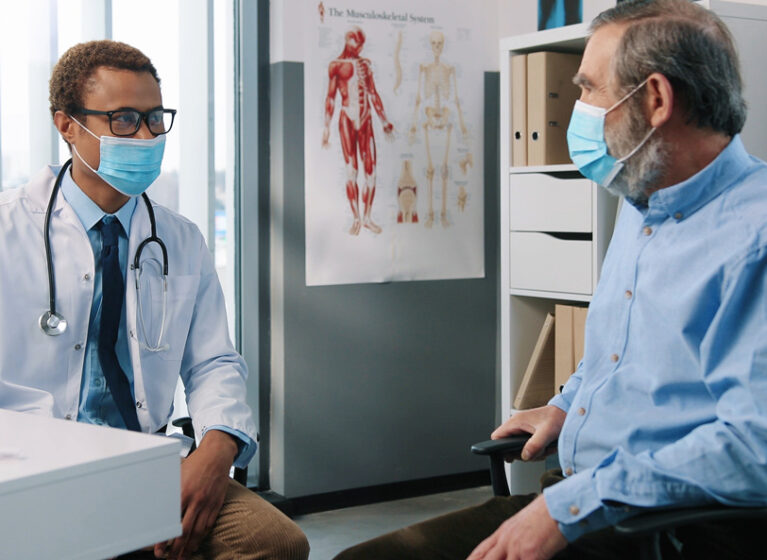
Treatments for cancers affecting male sexual and/or urinary systems can create particularly troublesome side effects. With the recent launch of the Cancer Survivorship Program, UVA Health is partnering with physicians who treat these cancers to reinforce educational efforts and provide support and treatment options for patients.
Urologist Nicolas M. Ortiz, MD, is director of the program, the only one of its kind in central Virginia.
Proactively Discussing & Addressing Treatment Side Effects
Typically, the primary concerns for someone diagnosed with cancer are eliminating malignant cells from their body and preventing recurrence. Patients understandably may not focus on side effects until the completion of treatment.
For men with cancers such as prostate, testicular, bladder or even colon, common side effects of treatment include erectile dysfunction (ED), urinary incontinence, and infertility. Patients consequently may feel disappointed with their treatment outcomes. Worse yet, they may hesitate to broach these sensitive topics with their physician.
Since joining the UVA Health Department of Urology in 2020, Ortiz has done a lot of work in cancer survivorship. Creating the Cancer Survivorship Program formalizes these efforts and brings a comprehensive range of services under one roof.
"After a patient is treated successfully, they may be surprised by some of the consequences," Ortiz says. "Our aim is to get them initially counseled more broadly on expectations and to address concerns proactively, beginning with open and compassionate discussion as well as customized and timely interventions. Ultimately, we want to empower patients to make decisions that positively affect their quality of life."
Pretreatment Counseling & Assessment Key Component
The Cancer Survivorship Program also includes two of Ortiz's colleagues, Ryan P. Smith, MD, and David E. Rapp, MD. The three urologists welcome the opportunity to work with physicians both within and outside of UVA Health.
Cancer pretreatment counseling and baseline assessment of urinary and erectile function are important first steps for many patients seen by Ortiz and his team.
"It's important to know where a patient is before they begin treatment," Ortiz says. "For instance, with ED, if a patient has bad erections before surgery, they won't get any better after being treated. In that case, we may be more aggressive in finding a permanent solution, such as a penile implant. Whereas if someone has good erections beforehand, they might be a candidate for penile rehabilitation."
Penile rehabilitation may involve implementation of erectile aids (e.g., daily oral medications or injections to maintain blood flow to the penis) early in the postoperative period, allowing patients to resume sexual activity sooner. UVA Health also offers low-intensity shockwave therapy for some patients with mild and moderate ED.
Extensive Services Through One Program
Other services available through the Cancer Survivorship Program include fertility preservation, urinary symptom and incontinence management, urethral reconstruction, and testosterone management after prostate cancer treatment.
"At many hospitals, the delivery of these kinds of services can be disjointed," Ortiz says. "You may need to see different specialists for fertility, for incontinence, for ED, and for other issues. We're doing all of that — as well as pretreatment assessment, which is so important — through one program."
Ortiz and his team currently see patients at the UVA Health Urology Clinic in Charlottesville. Some services are also available in a satellite clinic in Culpeper, Virginia. In the coming years, Ortiz hopes to expand the program to more satellite clinics around the state.
"We believe this program will be beneficial for many patients who may not feel comfortable discussing these sometimes embarrassing problems," Ortiz says. "We're looking forward to providing much more comprehensive care to cancer survivors."